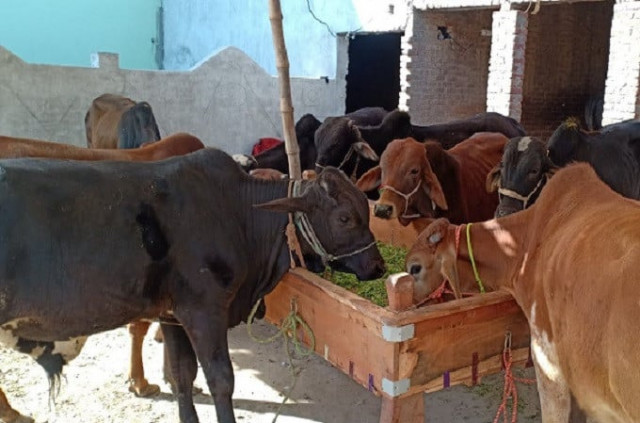Liver infection imperils flood-hit livestock
.

Floodwater contamination has increased the risk of liver fluke infection among livestock in South Punjab, posing a serious threat to animal health and productivity.
Cattle farmers are under immense stress due to disease in these areas.
Dr. Jamshaid, Deputy Director Livestock, Jalalpur Pirwala, said liver fluke (Fasciola hepatica) was a significant parasite affecting cattle, buffaloes, and sheep. After floods, the disease spreads rapidly as snails which was the intermediate hosts, multiply in stagnant water and on wet grass. When animals graze in such areas, they ingest the parasites, which enter the liver and jaw, causing inflammation.
He explained that many farmers mistakenly consider the disease as "Gul Ghotu", assuming it affects the throat, whereas it actually causes swelling in the jaw due to fluid accumulation and liver damage. The condition can lead to weakness, reduced productivity, and even death if not treated in time.
He said studies show that liver fluke infections were common, with prevalence ranging between 10 and 50 percent in various regions. Mortality was higher among sheep, while cattle were relatively more resistant.
However, chronic infections in cattle cause substantial economic losses due to weight loss, reduced milk production, and poor growth.




















COMMENTS
Comments are moderated and generally will be posted if they are on-topic and not abusive.
For more information, please see our Comments FAQ